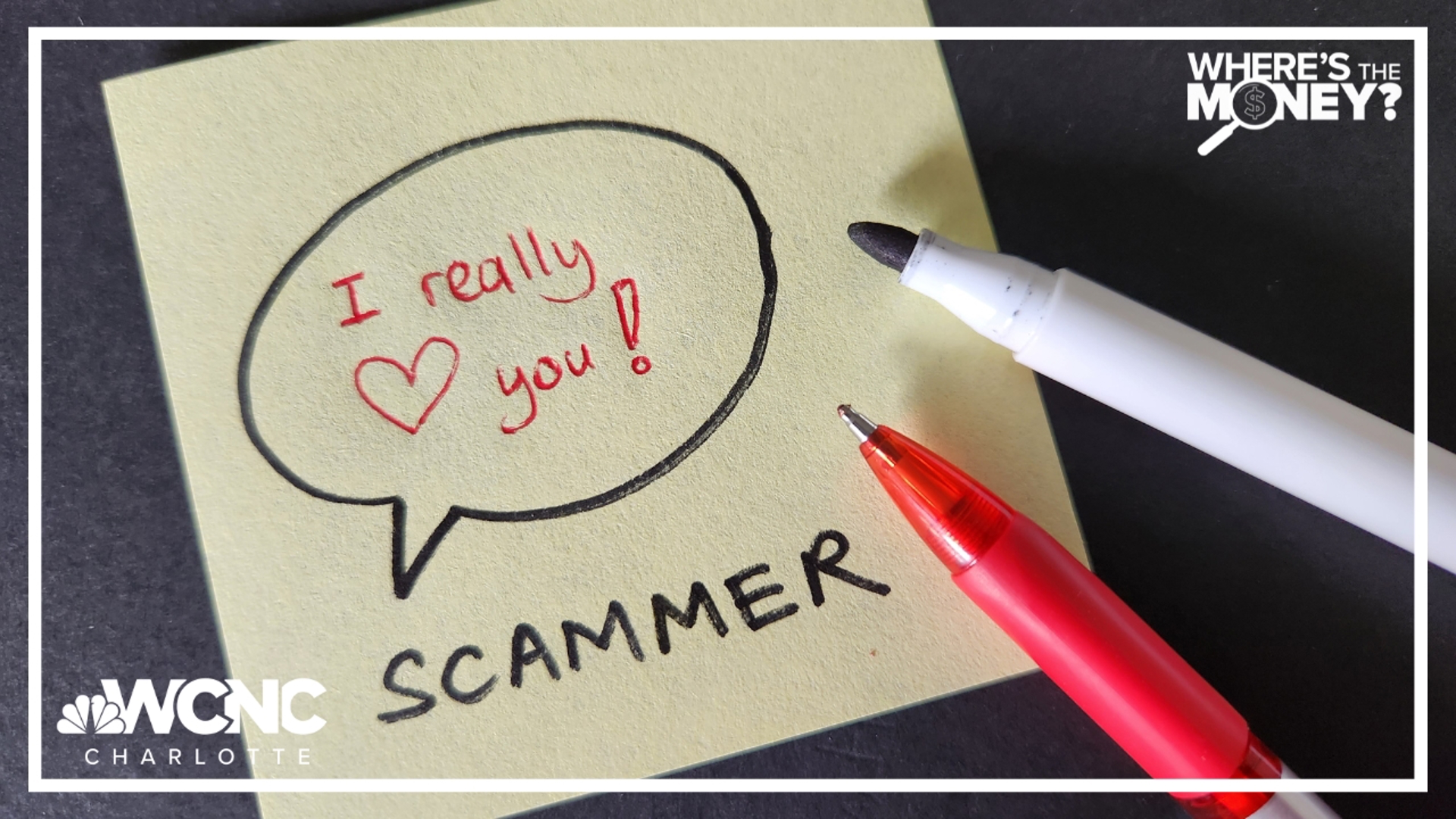CHARLOTTE, N.C. — Americans lost more than $1 billion to romance scams last year, according to data from the Federal Trade Commission, and more people are falling prey to these crimes.
Over 64,000 people reported losses to romance scams in 2023 alone, totaling $1.14 billion. North Carolina ranked No. 10 overall with 453 people losing almost $16.8 million.
WCNC Charlotte interviewed an admitted scammer who shared details on how these criminals target victims and convince them to hand over their money.
"Chris," who lives in Nigeria, said he ran numerous scams. So many that he couldn't remember them all.
"I did scam people," he said. "Different kinds of people. I cannot remember everyone."
He now works as a consultant for Social Catfish, a company that verifies online identities using reverse image search technology. He said the women he targeted were mostly single parents in the U.S.
"Most of them, they need someone to love them because they've been single for a long time," Chris said. "Most of the time on dating apps, I look for people, probably depressed people that have emotional issues going on with them. People like that, I encourage them. I make them feel good, that gives me an opportunity to get a chance with them."
WCNC Charlotte is always asking "where's the money?" If you need help, reach out to WCNC Charlotte by emailing money@wcnc.com.
Chris said he made over $70,000 over five years. He spent every penny of it. He also explained why so many scammers seem to be from Nigeria.
"There are so many graduates that are jobless, so many people that graduated 10 years ago from university," he said. "They have a very good degree and just so many people are jobless. Bad government, bad economy."
As for how he would lure victims, Chris said he used the same lie and it almost always worked.
"I tell them that I am in the military and I'm on deployment," he said. "I don't have access to my regular bank accounts because I am somewhere in Africa and I need money."
From there, he said the phony relationship would lead to him asking for money, telling these women he'd give it back once he was back in the U.S.
"I think I told them I'll pay them back when I'm back from deployment," he said. "And I was on deployment for maybe one year or two years."
If you're worried the person you've met online isn't being truthful, Chris said you should ask to see them in real time.
"When you meet someone on social media, on dating apps, if you feel like you're falling in love with them or you're trying to believe them, you should talk to them on video," he said. "It's very simple. If they're not going to show their face on a video call, it's absolutely a scam."
Here are some tips to avoid becoming a victim of a scam:
Emotional appeal - Any pitch that ratchets up your emotion will inhibit your rational judgment.
Sense of urgency - You MUST act now, or else.
Request for unorthodox payment - Gift cards, prepaid credit cards, wire transfers, etc.
Explanations that don't ring true - If your new “landlord” can’t show you the inside of the house, that could be because they don’t own it.
You won, now pay up - It’s not a prize if you have to pay for it. Taxes, fees, shipping, whatever.
Too good to be true - That’s because it’s not true. Sorry, your long-lost relative didn’t die, leaving you millions. That car you bought online for a third of its Kelly Blue Book value doesn’t really exist. The son of a billionaire diamond broker didn’t “swipe right” on you and fall instantly in love. That work-at-home job paying you hundreds of dollars an hour for stuffing envelopes isn’t real.
Contact Jane Monreal at jmonreal@wcnc.com and follow her on Facebook, X and Instagram.
WCNC Charlotte's Where's The Money series is all about leveling the playing field in the Carolinas by helping others and breaking down barriers. WCNC Charlotte doesn't want our viewers to be taken advantage of, so we’re here to help. Watch previous stories where we ask the question “Where’s the Money” in the YouTube playlist below and subscribe to get updated when new videos are uploaded.

